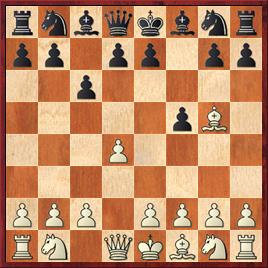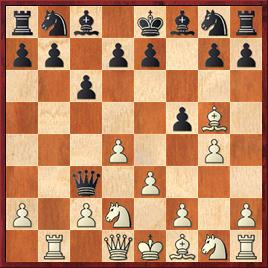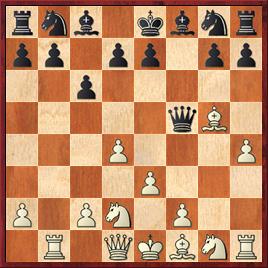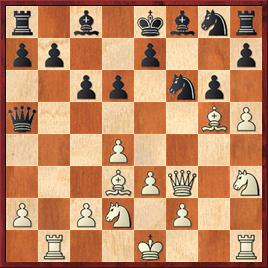
Dear members of the Chess Club and Scholastic Center of Saint Louis,
We chess instructors are men and women of principles. In fact, we have many principles, for all three phases of the game: Openings, Middlegames and Endgames. Opening principles are particular favorites: the bread and butter of the job, so to speak. We earnestly teach these time-honored principles with the hope they will be used by our students as signposts, inevitably helping to make well-considered decisions. Our principles are not rules and, if our students disagree, we’ve got a great many more of them. We keep many in reserve for when our students become stronger -- coaches dole out their principles carefully, and over time.
When elite grandmasters violate our cherished principles and lose, we instructors are very, very happy! We hold these games aloft before our adoring masses as proof positive that our principles should not -- I repeat: Not! -- be violated. When elite grandmasters violate our principles and win instead, another coaching principle is used: Completely ignore such games.
Yes sir, simplicity rules in the world of coaching.
For this blog, we have to revisit the scene of a crime recently committed by America’s top-rated player, GM Hikaru Nakamura, who gave a devastating exhibition of power-chess at the recently conducted 2015 Gibraltar Open. Hikaru crushed an impressive field of players, first jumping out to a score of 6/6 and then cruising to victory for an overwhelming score of 8.5/10.
How did he do it? Well in round one, on his tear out of the gate, Hikaru did so by violating all of our cherished Opening principles…
Dutch Defense [A80]
Vojinovic, Jovana (2301)
Nakamura, Hikaru (2776)
Tradewise Gibraltar Masters Gibraltar, 27.01.2015
1.d4 f5
Hikaru is one of the few elite players who regularly plays the Dutch Defense -- in particular the Leningrad Dutch, a defense generally regarded as combative, yet strategically risky. I'm not sure that move one could be criticized as violating our Opening principles, but there are lot of coaches out there already jumping up and down pointing out a potential Qh5! checkmate idea. We will have to chalk this up as a minor infraction against the sage advice: Don't expose your King in the Opening. Good principle. Write it down.
2.Bg5
An annoying developing move for the second player to meet. White's idea is to double Black's pawns after the natural developing move: 2...Nf6 3.Bxf6 exf6 4.g3, when White will follow up with: c2–c4, Nb1–c3, with a pleasant game.
2...c6
Don't make too many pawn moves in the Opening is another great principle! Beginning players often forget about the guys on the first rank, instead pushing pawns all too often. What is the correct number of pawn pushes in the Opening? No one knows! Just don't violate the principle, got it?
By the way, note that Black cannot win a piece: 2...h6 3.Bh4 g5? 4.e3 e5? (4...gxh4?? 5.Qh5, Checkmate is a great finish that would make all chess coaches happy!) 5.Qh5+ Ke7 6.Bxg5+! (6.Bg3? f4, would at least demonstrate Black's idea.) 6...hxg5 7.Qxh8, winning.

This analysis position makes for a truly wonderful diagram. A sterling example of why violating Opening principles is a surefire way to defeat. Take a look: Black has advanced two pawns and exposed his King, while no other pieces have been moved. Disastrous opening play by Black has been correctly, convincingly and properly punished. If you have ever had such a position, there are professionals ready to help.
We should ignore any criticism of White's play. Of course!
3.e3
A truly fine move. White is prepared to meet 4...h6 with a devastating checkmate attack.
3...Qb6
Gasp. Only three moves into play and Hikaru is on a tear -- that is, tearing up our cherished Opening principles notebook! Three moves made and three principles sacked. This one cuts across the grain of a biggie too: Don't move out your Queen early! Well this is just about as early as you can get. Does Black really want to go pawn grabbing and fall behind in development?
4.Nd2 Qxb2
Oh my goodness, Hikaru is really cruising for a bruising. Just a second; let me check the Opening principles guide ... yes, here it is. Chapter one: Don't grab the b-pawn in the Opening with your Queen -- it is likely to be poisonous and your Queen may get trapped. Hikaru is four-for-four and just getting warmed up.
5.Rb1
Not a bad move at all, White develops with tempo. On the other hand, this move might well have been saved for the moment, with something to be said for 5.Bd3!, also developing with tempo. White is then able to get his Kingside bits out quicker as well.
5...Qc3
A very good thing that Hikaru did not capture the second pawn -- that would have us coaches in a rage! In the immortal words of Nikolai Minev: "Black is going to die with a full stomach!" Our cherished principles would have won out, in that case! For example: 5...Qxa2? 6.Nc4! Threatening Ra1, snaring Black's Queen 6...Qa4 7.e4!! Same threat as before, White anticipates meeting: ...Qb4+, with the retreating Bd2, winning: 7...e6 8.Bd2! b5 9.Ra1 and Black's Queen is trapped. A vindication for our principles! Yay.
6.g4!?

Not a bad move at all. In fact, White's play shows good familiarity with my principles notebook: When your opponent falls behind in development, seek to open up the game by trading pawns. Can't get more crystal clear than that! On the other hand, there is that other principle about too many pawn moves...
White might have talked herself out of the text by considering 6.Bd3 d5 7.Ne2 Qa5 8.0–0. In this case, White has levers to open the game with c4, as well as the central break f3 and e4. Something of which our principles notebook would heartily approve: In the Opening, castle. Get your King to safety first and then look for attacking options. Brilliant advice.
6...Qa5
Oh my, when it rains it pours! Black's violation of moving his Queen so early leads (inevitably) to further loss of tempi. At least that is how I interpret the text: According to my principles guide, White’s advantage should be massively increasing.
7.gxf5 Qxf5
Dare I repeat myself?
8.h4?

Okay, this one we will frown upon. White protects the Bishop on g5, that is clear. But instead of moving pawns, bringing the bits into play with 8.Ngf3 is simply good -- the Knight sure would be happy.
Trying to justify the text, White may have wanted to cover the h3–square. For example, in the line: 8...Nf6 9.Bd3 Qh3 is available to Black. In a funny kind of way, looking at the aftermath of this position the question might be posed: "How did Black's Queen capture both the g-pawn and the b-pawn within nine moves?" Not easily answered.
8...Qa5
Gasp. What is America's No. 1 doing? From his first eight moves, Hikaru has moved his Queen six times! According to our cherished principles, he is not just courting disaster, he is making a whole-hearted embrace of certain defeat.
In Hikaru's defense, Black's Queen was sure to be harried anyway, either by: Bd3, Bh3 or e4, so moving the Queen pre-emptively while pinning the d2–Knight isn't terrible. Arguably the best move.
9.Nh3
A bit artificial. While we've left "normal" a long time ago and are now traversing through some chess fantasy land, normal play by White might have continued: 9.Bd3 Nf6 10.e4 d6 11.Ngf3!? e5 12.0–0 Qc7. While not promising for White, it looks okay. In this particular analysis, the move 8. h4 now appears to be more than just a lost tempo.
9...g6
Hikaru, true to his own principles, refuses to develop another piece. Coaches everywhere were heard gnashing their teeth.
10.Bd3 d6
"Pawns and Queens only!" appears to be Hikaru’s battle cry. This is chess being played at the highest levels in the 21st century. Certainly 19th century masters would have a strange impression about two hundred years of progress...
11.Qf3 Nd7!
Finally, Hikaru relents and develops a piece. A good thing too: Now we coaches can jump off the bench and say, "Good play, good play! You see, pieces are important! Get the guys out!"
12.h5 Ndf6

Another collective gasp. Moving the same piece twice? And on back-to-back moves, as well. Coaches are pulling out their hair. We must all work harder.
13.hxg6 hxg6 14.Bxg6+
Winning back the sacrificed material!
14...Kd8
Black has been forced to move his King foreswearing his right to Castle. Another principle that coaches hold near and dear: Castling is more than just a privilege. Don't squander it!
At this point, we have to halt our annotations. Why? Well for many good reasons. First, having violated so many principles in one outing, there isn't much left to criticize. I know I’m exhausted. Next, there isn't much in the way of principles being violated remaining from the play.
Also, my chess engine considers the position better for Black. Despite having violated basically everything that chess coaches hold sacred, Hikaru went on to win convincingly.
15.Bf4 Kc7 16.Ng5 Rxh1+ 17.Qxh1 Bh6 18.Qh4 Bd7 19.Bd3 Nd5 20.Ne6+ Bxe6 21.Bxh6 Nc3 22.Ra1 Qb4 23.Kf1 Nxa2 24.Rd1 Nc3 25.Re1 Nxh6 26.Qxh6 Bd7 27.f3 a5 28.Kf2 a4 29.Qg5 Rh8 30.Qg3 Nd5 31.Rd1 c5 32.Bc4 Nc3 33.Re1 b5 0–1
Finally, if I continued my annotations, I'd be violating the principle of ignoring games that are won by violating principles. And I'm a man of principles.
May all your sacrifices be sound,
Yasser Seirawan


